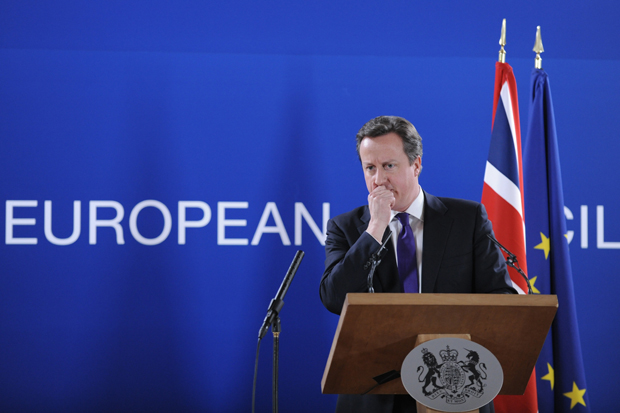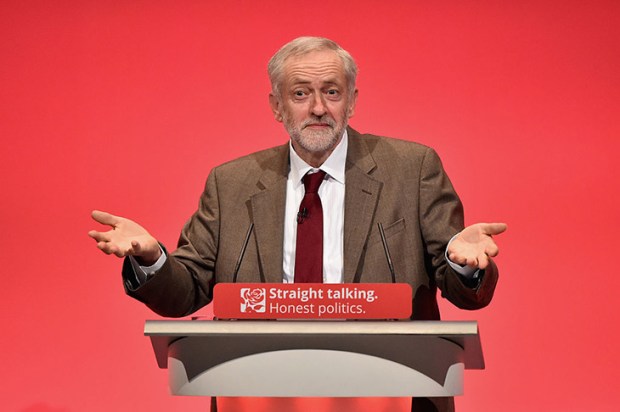Listen
It is easy to mock David Cameron on immigration. Under pressure from the public and from Ukip, he’s having to hot-foot it to a tougher position on the free movement of labour within the European Union. Ideas dismissed as unworkable only a few months ago are now on the table. But it’s not all political positioning. There really is a serious case for Britain to be treated differently from eurozone countries when it comes to freedom of movement.
Whoever ends up in government after the next election, Britain’s relationship with the EU is going to have to change. Why? Because Britain is one of only a handful of EU members that will never join the single currency. A few years ago, it looked as if several of the larger eastern European countries would also stay out. Now, however, they view membership of the euro as part of their defence against a resurgent Russia. Most of the new-accession countries will be in the single currency by the end of the next decade. By 2030, Britain, Denmark and Sweden could be the only EU states outside it.
Of these three countries, Britain has much the largest economy. So if the eurozone economies converge — and they must converge if their union is to survive — then Britain, with its different business cycle, will end up as the eurozone’s safety valve whenever unemployment spikes.
Indeed, there are signs of that happening already. In 2006, before everything went wrong, fewer than 10,000 Spaniards were issued with UK National Insurance numbers. Last year it was more than 50,000. You can see the same trend in terms of immigration from Portugal — from under 10,000 NI numbers issued to more than 30,000 — and Italy, which has gone from just over 11,000 to 44,000 on the same measure. That’s more than 120,000 immigrants to Britain last year from just three long-established EU member states. Such figures make a mockery of Cameron’s aim to reduce net migration from the hundreds of thousands to the tens of thousands. They also put in question any policy proposal based on the idea that the problem is just immigration from new member states. Longer ‘transitional controls’ — tougher immigration conditions for those who have recently joined the EU — would not address the eurozone factor.
No. 10 is shifting position on the freedom of movement question not only to dish Ukip, but because it fears that the return of the eurozone crisis will lead to a further increase in continental migration to Britain. Now that so many Spaniards, Italians and Portuguese citizens are in the UK already, government sources argue, the next wave of migration from these countries will be even bigger. There’s a simple reason why these ambitious people are moving here: Britain is where the jobs are. Since 2010, our economy has created more jobs overall than the rest of the European Union put together.
One can make a strong argument that Britain should welcome these migrants. These are people who have shown the get-up-and-go to move countries in search of a job. Public opinion, however, does not seem particularly receptive to this case. More than three-quarters of those polled want immigration reduced and a majority believe that the costs of EU migration to Britain outweigh the benefits.
Public opinion is leading this debate on immigration. Cameron candidly admits that the people are ‘the boss’ and that he is acting on freedom of movement because ‘they want this issue fixed’. The difficulty for him, though, is that the public’s desire to see ‘this issue fixed’ might not be compatible with Britain’s membership of the EU.
Nigel Farage has said that for years now he has wanted to turn the debate on Britain’s membership of the EU into one about who controls who can come into this country. If the public came to equate EU membership with open borders, they would want out. To date, the Tory response to his success with this line of argument has been to clamp down on abuses of free movement and argue for longer restrictions on new member states, rather than to question the principle itself. But that appears to be changing.
A senior figure at No. 10 confirms that before Christmas Cameron will outline steps to limit the numbers of EU migrants to Britain. This is at odds with the Treaty of Rome. It is also a radical departure from what the Tories talked about until recently, which was simply toughening up the rules on EU migrants claiming benefits and the like.
It was fairly easy to see how EU-wide agreement could be reached on the old proposals. But at the top of the government, they admit that the rest of Europe is unlikely to accept the kind of immigration controls that Cameron is now talking about until the last moment of a renegotiation. They believe that ultimately the fear of Britain leaving will be enough to make the other leaders agree to Cameron’s request.
There’s a reason why, up to now, Cameron has been so reluctant to set out what he wanted. He knew how risky it would be to create any kind of scorecard against which his renegotiation could be judged. If he declared what he was after and then didn’t get it, he would find it far harder to recommend that people should vote to stay in. That’s why many of those who backed him for the leadership in 2005 worry about the way he’s talking about immigration now. They’re afraid he’s setting a bar for the negotiations that he won’t be able to clear.
The other danger for Cameron is that the electorate simply won’t take his promises on immigration seriously; all he will achieve is talking up Ukip’s main issue. Cameron’s allies, though, argue that he has to show that he understands public feeling on immigration to get a hearing on the issues the Tories would prefer to focus on. As one of them puts it, ‘Unless you show you have an answer on this, your permission to talk about the economy declines.’
Perhaps the problem, though, is that renegotiation is the wrong word to describe what David Cameron is trying to achieve. One of his more thoughtful ministers suggests that instead of promising to renegotiate, Cameron should have committed himself to crafting a new form of EU membership appropriate for a country that will never join the euro. For that is what Britain’s next Prime Minister must do.
Got something to add? Join the discussion and comment below.
Get 10 issues for just $10
Subscribe to The Spectator Australia today for the next 10 magazine issues, plus full online access, for just $10.
You might disagree with half of it, but you’ll enjoy reading all of it. Try your first month for free, then just $2 a week for the remainder of your first year.















Comments
Don't miss out
Join the conversation with other Spectator Australia readers. Subscribe to leave a comment.
SUBSCRIBEAlready a subscriber? Log in